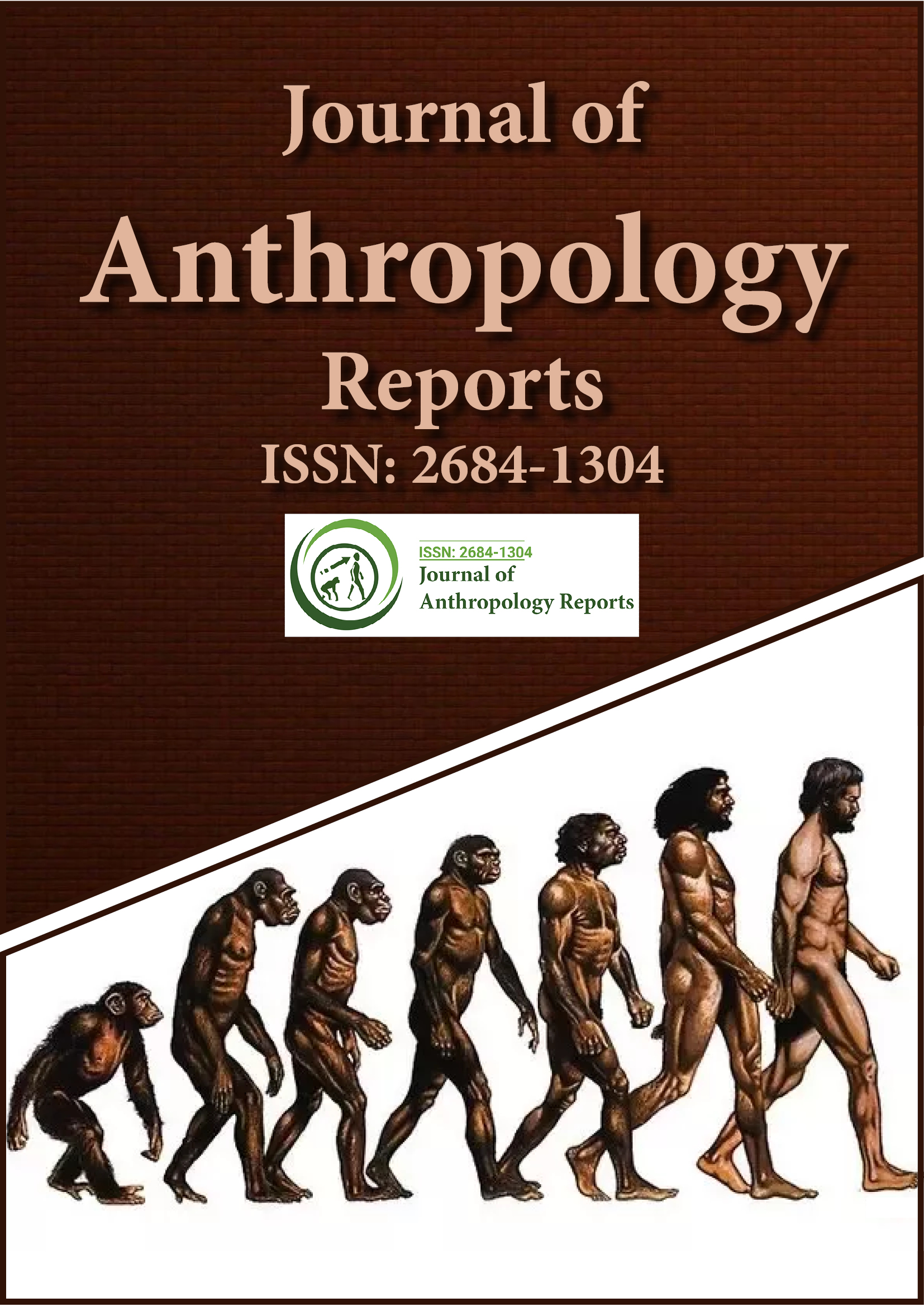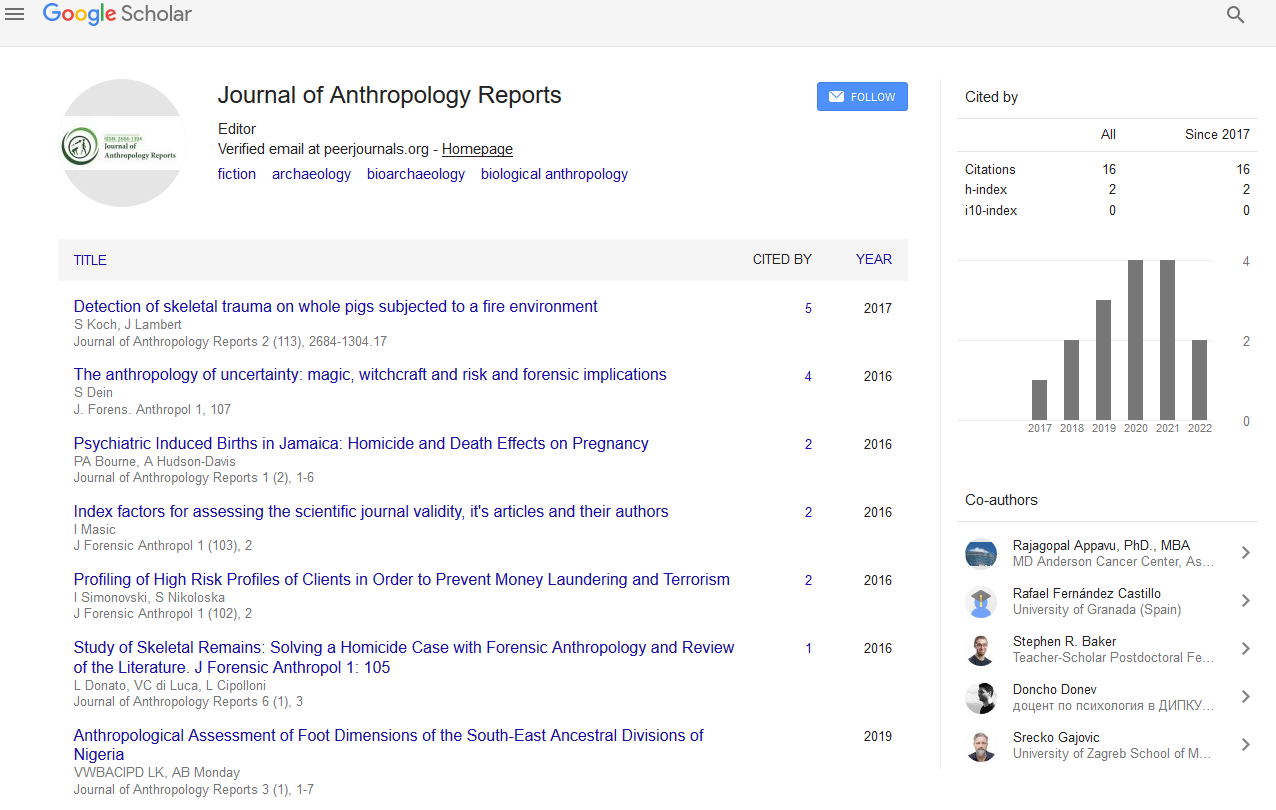Indexed In
- RefSeek
- Hamdard University
- EBSCO A-Z
Useful Links
Share This Page
Journal Flyer

Open Access Journals
- Agri and Aquaculture
- Biochemistry
- Bioinformatics & Systems Biology
- Business & Management
- Chemistry
- Clinical Sciences
- Engineering
- Food & Nutrition
- General Science
- Genetics & Molecular Biology
- Immunology & Microbiology
- Medical Sciences
- Neuroscience & Psychology
- Nursing & Health Care
- Pharmaceutical Sciences
Short Communication - (2022) Volume 5, Issue 5
Impact of Terrorism on Society Insecurities
Tharin Abam*Received: 23-Aug-2022, Manuscript No. JFA-22-18362; Editor assigned: 26-Aug-2022, Pre QC No. JFA-22-18362 (PQ); Reviewed: 09-Sep-2022, QC No. JFA-22-18362; Revised: 16-Sep-2022, Manuscript No. JFA-22-18362 (R); Published: 23-Sep-2022, DOI: 10.35248/2332-2519.22.5.140
Description
Terrorism has ramifications for the societies it affects or targets. While this impact can be one-time or limited it is now heavy and long-lasting due to the terrorism of radical Islamic groups such as al-Qaeda and more recently ISIS, even if it does change over time. Terrorism seeks to instil fear, insecurity, and the notion that leaders can no longer protect those they lead. It stuns people and has an emotional impact that endures through its political implications [1]. These political implications are primarily related to democracy and the separation of powers, and they can lead to the unravelling and abuse of existing structures in ways that benefit the government. They can also help populist or nationalist causes by playing in favour of authoritarianism.
If the impact of terrorism is long-lasting, it becomes cultural people change their habits and behaviours, learning not to be passive in the event of a terrorist attack and going about their daily lives with the possibility of a terrorist attack in the back of their minds [2]. They also consume differently, which has a variety of consequences, including significant economic ones. Terrorism alters people's perceptions of reality. Terrorist attacks also have an impact on tourist flows, resulting in new investments, particularly in security. It forces businesses to take new measures, forcing them to monitor their employees in new ways and based on criteria that can be highly contentious. It also has an impact on prison staff, prison life, and how prisons operate. Terrorism is quickly becoming a global phenomenon, with logic that exists both within and outside the societies it affects. This in turn has an impact on diplomacy, intelligence, and war [3].
It affects certain societies that have been willing to recognise victims for over a half-century and now prioritise remembrance, even if this has an impact on history [4]. Because of the large number of terrorist victims, victims' associations, memorials, and memorial projects, as well as museums, have been established. Some populations are more impacted by terrorism than others, such as Muslims and Jews in cultures where they make up a minority. Additionally, it dehumanises or marginalises minority groups, such as Muslims in Western nations, leading the general public to believe that these individuals are criminals since they participated in this terrorism [5].
Conclusion
All facets of human rights as they are defined by all declarations, agreements, and conventions are affected by terrorism. The universal declaration of human rights outlines a number of rights, including the freedom from slavery; the right to life, liberty, and personal security; the freedom from discrimination; and the freedom from torture and inhumane treatment. The impact of terrorism has been felt in practically every aspect of human life, whether it be political, social, or economic. When compared to other traumatic events like natural disasters, terrorist attacks often affect those who were far away and knew no one who was involved. That is in part due to how seemingly random attacks seem to be. It further demonstrates how unsettling the concept of an "enemy inside" is. The zeal of a terrorist lends a horrific element to suicide attacks.
REFERENCES
- Lewis JH. The mental health of crime victims: Impact of legal intervention. J Trauma Stress.2003;16(2):159-166.
[Crossref], [Google Scholar], [PubMed]
- Coker D. Crime control and feminist law reform in domestic violence law: A critical review. Buffalo Crim Law Rev.2001;4(2):801-860.
[Crossref], [Google Scholar]
- Lochner L. Individual perceptions of the criminal justice system. Am Econ Rev.2007;97(1):444-460.
[Crossref], [Google Scholar],
- David MS, Prinz RJ. Children who murder: a review. Clin Child Fam Psychol. Rev.2000;3(2):97-115.
[Crossref], [Google Scholar], [PubMed]
- Levitt L, Hoffer TA, Loper AB. Criminal histories of a subsample of animal cruelty offenders. Aggress Violent Behav.2016;30:48-58.
[Crossref], [Google Scholar]
Citation: Abam T (2022) Impact of Terrorism on Society Insecurities. J Anthropology Rep. 5:140.
Copyright: © 2022 Abam T. This is an open-access article distributed under the terms of the Creative Commons Attribution License, which permits unrestricted use, distribution, and reproduction in any medium, provided the original author and source are credited.

